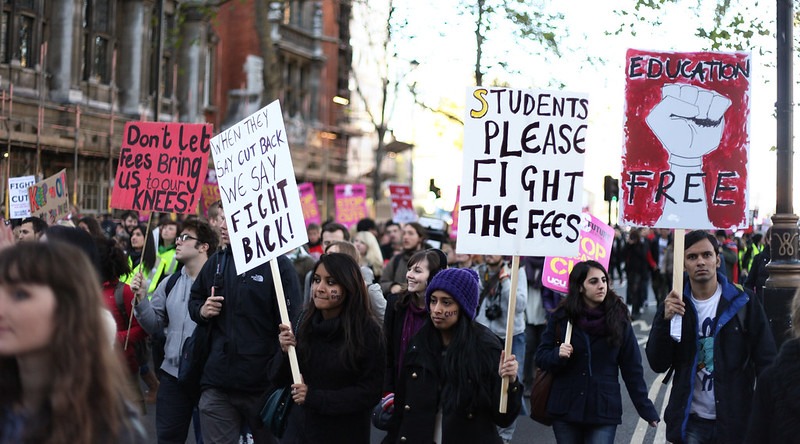Students fatalistic as tuition fees in England to rise for first time in eight years
University tuition fees in England are set to rise for the first time since 2017, prompting an attitude of resignation among students.
The planned 3.1% increase may seem modest, but marks only the second rise since tuition fees were controversially tripled in 2010 under David Cameron’s coalition government.
This hike, part of austerity measures championed by the then-Chancellor, George Osborne, was an attempt to give universities greater financial autonomy and a more direct and sustainable funding model.
In the subsequent 14 years, tuition fees have remained relatively static, increasing only slightly in 2017 to keep pace with inflation.
In real terms, however, the value of fees has been outstripped by inflation and the rising cost of debt. Coupled with declining international student numbers, many institutions now struggle to balance their budgets.
Currently, about 40% of universities operate at a deficit, while modelling by the Office for Students (OfS) suggests nearly 3/4s of higher education providers could be losing money by 2025–26.
Such an environment has effectively made government intervention in the sector impossible, leaving a fee increase inevitable
The challenge is worsened by the broader economic climate: UK debt repayments now consume more government spending than the annual education budget.
Such an environment has effectively made government intervention in the sector impossible, leaving a fee increase inevitable. This outcome appeared confirmed in July, after Bridget Phillipson, the Education Secretary, stated that the government would not bail out struggling universities.
Perhaps predictably, the fee rise was met with dismay from students. Ed, a second-year PAIS student, told The Boar he worried the decision would further discourage working class students from university.
He noted “the need for some sort of payment to keep universities afloat” but espoused his own view that: “I fundamentally believe that education, as the greatest tool for progress, should be free at all levels.”
Xander, a first-year student studying History and Politics, was more fatalistic, arguing that the state of the economy was preventing government action. He observed: “Universities are being put under enormous pressure.”
He added: “Tuition fees are the fairest way to pay for university education. It should be thought of as more akin to a graduate tax rather than a debt as so many call it. It is measured off of the benefits you get from studying at university.”
A £285 increase in tuition fees is not something a new Government wants to do, but it was something that had to be done
Matt Western, MP for Warwick and Leamington
The Boar further spoke to Matt Western, Labour MP for Warwick and Leamington and the former Shadow Universities Minister. Speaking from his experience in the role, Western argued: “It was long clear that universities were facing a dire financial situation unless something changed.”
Defending his party’s decision, he said: “A £285 increase in tuition fees is not something a new Government wants to do, but it was something that had to be done.
“It was a decision that had been shirked for too long and with fees frozen, universities were feeling the impact as the fees’ real-term value fell to just £6,000.”
The new tuition fee increase will be balanced by a corresponding increase in student loan support for low-income backgrounds, helping to prevent immediate financial strain for students. Mr Western hailed this increase as “welcome”, whilst attacking what he deemed as “paltry” increases in student support by the last government.
This was a bold decision and one that I know will disappoint some of you, but the consequence of further inaction would have meant several universities facing collapse
Matt Western, MP for Warwick and Leamington
“I’ve had many conversations with students who struggle to make ends meet. I hope this increase will provide much needed support for many students.”
Speaking directly to The Boar’s readers, he noted: “This was a bold decision and one that I know will disappoint some of you, but the consequence of further inaction would have meant several universities facing financial collapse. That is not something I would be willing to accept.”
In the long-term, the rise in fees may mean a longer repayment period for students, though saving guru Martin Lewis, speaking on BBC 5 Live, suggested this would only apply to “mid-high to higher earning graduates”.

Comments